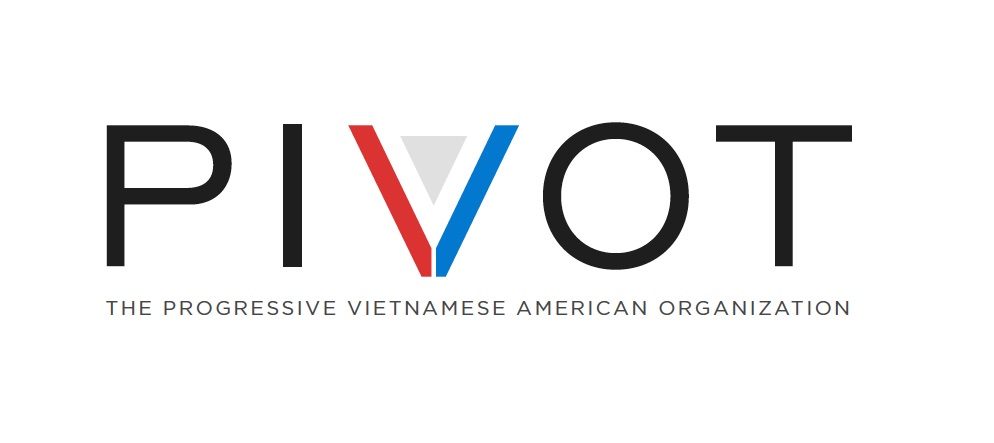We are Southeast Asian American Students, and we Support Race-Conscious Admissions at Harvard and Beyond
/August 16, 2018
Luke Kertcher is an undergraduate student at the University of Pennsylvania
Trinh Truong is an undergraduate student at Yale University
Like 20% of our classmates at Yale and Penn, we are Asian American students attending Ivy League schools.
One of us graduated from a public school in the rural Midwest, where only a handful of Asian Americans were enrolled. The other attended a high-needs, urban public school in upstate New York, where more than 47 languages were spoken by a student body comprised mainly of refugees and immigrants. One of us had no standardized test preparation beyond poorly resourced teachers printing past exams. The other is lucky to have been included in a limited-enrollment college preparation program for low-income students that offered test preparation. Both of us are first-generation, Vietnamese American college students receiving substantial amounts of financial aid.
Edward Blum, a conservative activist who has previously attacked the Voting Rights Act and worked to disenfranchise immigrant voters, is now claiming to be on the side of Asian American students like us. Blum’s organization, Students for Fair Admissions (SFFA), is suing Harvard for discrimination against Asian Americans. The anti-affirmative action plaintiffs argue that consideration of many factors, including race, in college admissions disproportionately hurts Asian American applicants. If admissions were based on academic measures alone, Blum claims, more Asian Americans would be admitted to elite colleges like Harvard, or Yale, or Penn.
Blum and SFFA perpetuate a narrative that claims schools like Harvard engage in racial bias by assigning Asian Americans lower “personal scores” than other applicants. But the personal score is not a “personality” test. More accurately, the personal score is part of a holistic review process that considers students’ personal histories and unique circumstances—aspects of a student that are not effectively captured by standardized tests. These are exactly the aspects of our lives that we sought to emphasize in our applications. The Trump administration and the Department of Justice have also expressed support for ending whole person review, instead supporting the use of metrics like test scores and GPA alone.
However, reducing applicants to purely numeric standards doesn’t help Asian American students like us. Rather, it erases our rich ethnic and racial histories—who we are as people. Expert analyses from both sides of the case show that the elimination of non-quantifiable factors in college admissions would have a devastating effect on Black and Latino students’ enrollment. Economist David Card, who is working on the Harvard case, has shown that relying on academic criteria alone benefits white students most and Asian American students negligibly.
Moreover, standardized test scores and grade points are not free from racial bias. Studies have shown that higher scores correlate with higher socioeconomic status. Data aggregation also obscures the interethnic disparities within the Asian American community, rendering our educational system blind to those facing the most systemic disadvantage.
When Blum and his supporters stereotype all Asian Americans as the same, they dehumanize us and obscure diversity within our Asian American community. While most Asian American applicants are of Chinese and Indian origin, a minority have heritage from Southeast Asian and many other Asian countries. Those from places like Vietnam, Cambodia, and Laos are much more likely to identify as limited English proficient, live in poverty, come from households with lower levels of educational attainment, and confront gang violence at higher rates than other Asian Americans.
However, this history is forgotten and erased under the predominant stereotype of the model minority. Janelle Wong, a political scientist studying Asian American civic life, traces the origins of this model to the Immigration and Nationality Act of 1965 that instituted meritocratic, “selective recruitment” policies based on occupational skills, education, and family reunification that have become the cornerstones of contemporary immigration law. As a result, all Asian Americans are perceived as test-taking aces due to some innate racial quality, but this is not our story. Our immigration narrative begins not with selective economic migration, but with the Vietnam War, the Secret War in Laos, the rise of the Khmer Rouge, and the subsequent exodus of refugees from mainland Southeast Asia.
Ed Blum and SFFA don’t represent us or our interests. As two Vietnamese American students, we have benefited from holistic admission policies that considered our families’ unique immigration histories and socioeconomic backgrounds instead of just our imperfect test scores. Because of affirmative action and holistic review that considered factors like our racial and ethnic backgrounds, Yale and Penn were able to see us as more than just numbers, but as high achievers with unique experiences and perspectives capable of contributing to our campus communities.
One of us is the son of a refugee who fled South Vietnam on a boat in 1975. The other is a more recent political refugee from South Vietnam resettled in 2001. Both of us are in the United States because of the historical legacy of the Vietnam War and the mass refugee resettlement of more than three million Southeast Asian refugees that occurred in its wake. Many of these individuals–including our families–were resettled without adequate access to education, housing, and healthcare, creating generational poverty, violence, and trauma.
Students with experiences like us will be excluded if holistic admissions and affirmative action policies are eliminated.
In an era where the definition of who belongs in America and who gets access to its institutions is in flux, this case becomes about more than just Harvard University and Asian Americans. An attack on affirmative action is an attack on racial justice, social mobility, and immigrants.
